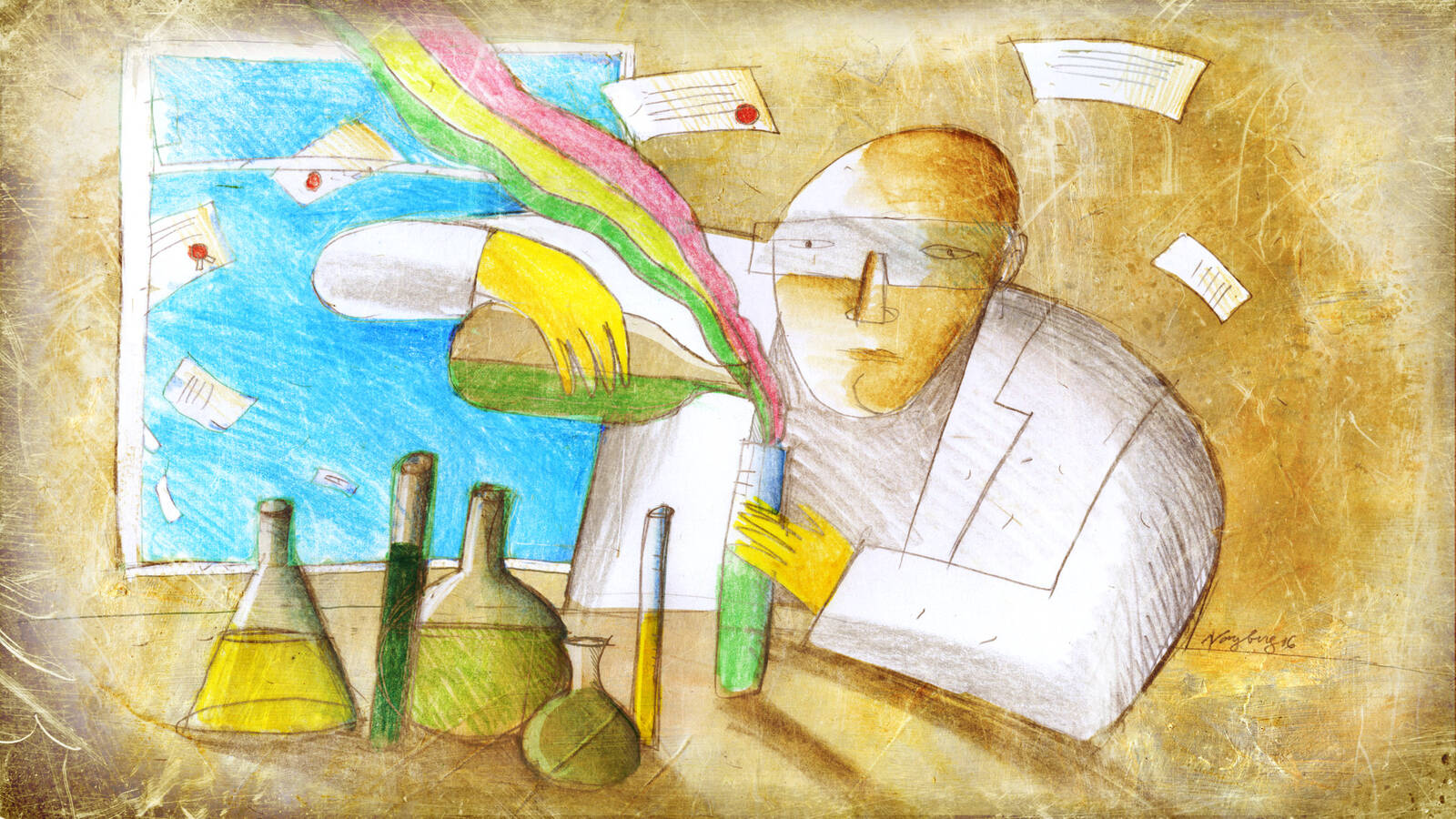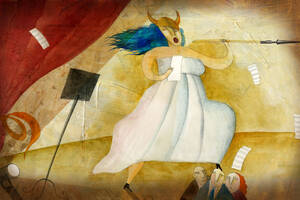Strategy Innovation Mar 7, 2016
What Happens When a Company Loses a Patent?
A look at whether compulsory licensing can increase innovation.

Yevgenia Nayberg
What happens when a critical medication, say an HIV drug, is overpriced compared with its cost in a neighboring country? Or when the supply runs short in a foreign land?
One option is for the affected country’s government to license foreign-owned patents to local firms without the consent of the patent’s owner. Called compulsory licensing (CL), it can be a boon—even a lifesaver—for patients. But drug companies argue that overriding patents harms them financially, which makes them less likely to develop new drugs or to improve old ones.
Does their argument hold water? Does compulsory licensing harm innovation?
The Kellogg School’s Nicola Bianchi and coauthors tackled this question by analyzing an episode of CL triggered by World War I. In 1918, the U.S. confiscated thousands of German-owned patents under the Trading With the Enemy Act (TWEA). While the boom in American innovation following this period is well studied, no one has previously examined how CL affected the German inventors who lost their patents.
The researchers found that, in this scenario, having a patent licensed by the U.S. actually increased innovation.
Fallout from the Trading With the Enemy Act
The bulk of licensing of confiscated German patents took place between 1919 and 1922, when the U.S. licensed 1,246 patents to American firms.
“Firms that lost their patents in the U.S. patented a lot more in the technological area where they lost the patent.”
Bianchi teamed up with Joerg Baten of Germany’s Eberhard-Karls University and Petra Moser at New York University to conduct the research based on newly available German patent data from 1900–1930.
The team decided to focus its study on chemical patents. They started by examining all 79,591 patents issued to Germans for chemicals. Chemical patents were issued into more than 200 subclasses, 79 percent of which contained at least one patent confiscated by the U.S.
They then used these patent subclasses to compare how compulsory licensing affected different chemical research areas or “fields.” The researchers found that in those fields that had been affected by CL, Germans applied for about 3 additional patents per year after 1918—a jump of about 28%. In fields that had not had any patents overridden, patenting output stayed flat.
And, though they are an imperfect measure, patents are a good way to study innovation, Bianchi explains.
“The idea here is that we’re measuring technological output by counting the number of patents,” Bianchi says.
Focusing on High-Value Patents
Of course, not all patents represent a valuable innovation.
Sometimes patents are applied for merely as a strategy to block a competitor’s research. Bianchi and his team wanted to know if the increase in patenting activity represented an uptick in meaningful innovation or whether it was simply part of a chess move.
To find out, the researchers looked at the number of times that the patents had been renewed by their German inventors, both before and after 1918. Previous research established that patent-renewal activity is a good proxy for patent value. The longer the renewal period, the more valuable the patent, and the more likely that it represents true innovation. They deemed patents that were not renewed for at least five years to be low value.
After weeding out the low-value patents, the researchers found a 17 percent increase in high-value patent activity in fields with CL during the post-war years compared with pre-war years.
CL and Competition
While compulsory licensing in a given field did appear to spur innovation in that field, this does not necessarily mean that the individual German companies whose patents were poached came out ahead. What did their patent activity look like?
Bianchi’s team was able to identify 50 German firms that had at least one of their chemical patents licensed under the TWEA. They found that firms whose patents had been poached applied for an additional 0.42 patents in fields with CL after 1918. Given that firms applied for an average of 0.46 patents per firm per year before 1918, this equals a whopping 91 percent increase.
This increase was strongest in fields where competition had been low prior to 1918. Put simply, CL was highly effective in fostering invention because competition ballooned in fields where it had previously been weak.
“Firms that lost their patents in the U.S. patented a lot more in the technological area where they lost the patent,” Bianchi says. “That is an important result, because it says that the firms which were directly harmed by compulsory licensing patented more in the same technological areas.”
In other words, patent losers did not throw up their hands and quit inventing.
“One-Shot Events” Are Key
Given the uniqueness of the period studied, it would be simplistic to generalize these findings to suggest that CL always leads to increased innovation and competition. Still, lessons can still be gleaned.
While the patent confiscations under the TWEA were permanent—an unlikely action nowadays—firms could expect that such patent seizures would not happen again. After all, the TWEA was first and foremost a wartime measure. This created a perception that the CL episode was a “one-shot event,” as Bianchi terms it.
Bianchi says that knowing CL will not be repeated the next time a valuable patent is issued is key to using it to boost innovation.
One-shot events signal that though inventors may lose their competitive edge temporarily, all is not lost, because they can regain it with their next innovation.
“What really matters here is the expectation that firms have about compulsory licensing in the future,” Bianchi says.
“Compulsory licensing shouldn’t be invoked just to give an advantage to local domestic industries,” Bianchi cautions. “Governments need to agree to only do this to help in crises or events where compulsory licensing will generate a greater good, and we know there are cases where the greater good should definitely prevail against private interests.”
Bianchi, Nicola, Petra Moser, and Joerg Baten. 2015. “Does Compulsory Licensing Discourage Invention? Evidence From German Patents After WWI.” Working paper.


